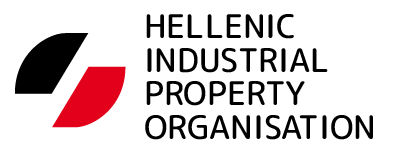The role of the engineer as a patent advisor, which will be certified through relevant exams starting in 2023, was the focus of the second day of the workshop titled “New Activities for Engineers: The Engineer as Inventor and Patent Advisor.” The event was organised by the Hellenic Industrial Property Organisation (OBI) in collaboration with the Hellenic Industrial Property Academy (HIPA) and the Technical Chamber of Greece (TCG), held on December 9 and 10, 2022, in Thessaloniki at the MonAsty hotel’s event hall.
Dr. Lampros Pyrgiotis, OBI Board Member – TCG Representative, and HIPA Board Member, who coordinated the workshop, emphasized that this is a multifaceted initiative involving education and post-graduate specialization in the substantial field of industrial property law and apprenticeships. This initiative has been fully undertaken by HIPA.
Dr. Ioannis Katsogiannis, Associate Professor of Environmental Technology at the Department of Chemistry, AUTH, President of the Union of Greek Chemists, President of HIPA, and OBI Board Member, outlined the primary goals of the Academy. The main objective is to develop a national system for education, training, and certification in industrial property, leading to the certification of patent advisors. According to the current schedule, after October 2023, HIPA will organise national exams for the first time in Greece, allowing engineers to receive certification as patent advisors. He pointed out that one of the key functions a patent advisor will provide includes the selection of patentable subjects, thorough research and documentation of the state of the art, and the validation of granted rights in destination countries. Dr. Katsogiannis also discussed the rich activities of the Academy for 2021-2022 and the collaboration with TEE, which will contribute to implementing apprenticeship programs for patent advisors, which will initially run as pilot programs.
Dr. Katsogiannis mentioned that several universities have expressed interest in involving the Academy in postgraduate programs and establishing a communication channel for submitting their research and inventions to OBI. He stated that a two-year education program has already started (which is posted on the HIPA website), with the hope of attracting international applicants. The call for trainers is open until December 16, and a call for those interested in training will be issued on January 15, with the program beginning in mid-February 2023. The ultimate goal is to communicate the culture of industrial property.
Dr. Pyrgiotis commented that “the inventor is strictly technical, while the advisor is required to be a craftsman, with special knowledge that the Academy aims to provide.”
The Role of the Apprenticeship Supervisor and Patent Advisor Mentor from TCG
Dr. Georgios Papadakos, Mechanical Engineer and Member of the Special Scientific Committee of TCG for Infrastructure Quality, in his speech, discussed the supporting actions TCG has undertaken for HIPA, one of which is the implementation of the apprenticeship program. He emphasized the importance of establishing the conditions for these programs to run smoothly and for applicants to receive the necessary support, ensuring they are safely guided to the result. One of these conditions is having supporting roles such as apprenticeship supervisors and mentors for patent advisor trainees. He also mentioned TCG’s proposal, which foresees the role of the apprenticeship program supervisor and the hosting entity, which could also be an individual, to allow for apprenticeship in an organisation or company. He clarified that the role of the mentor for a trainee patent advisor is not identical to that of a patent advisor, as the mentor’s qualifications go beyond those of a patent advisor. He highlighted that TCG, as a certifying body, is legally able to certify professional expertise in accredited certification systems, which it is promoting for these specific roles.
He discussed the duties of the apprenticeship supervisor, which include monitoring the effective implementation of the apprenticeship and acting as a project manager, ensuring that applicants do not end up in a program that could fail. He also noted that the mentor’s responsibilities include developing additional qualifications to strengthen human resources. It is expected that, by early 2023, the first pilot implementation of these programs will start through the collaboration of TCG, OBI, and HIPA, forming the first cohort of apprenticeship supervisors and mentors.
European Patent
Dr. Manolis Samouilidis, Professor at the School of Naval and Mechanical Engineering at NTUA, European Patent Attorney, noted during his speech that the number of inventions managed by patent attorneys is vast. He mentioned that 3.5 million patent applications are made across 160 countries, with China and the USA leading in filings. He explained that the “core” of a patent examiner’s work is representation. “They must be able to support the defense of the application in the event of opposition and have the capacity to argue for the cancellation of patents from competitors.” He highlighted the importance of the “freedom to operate,” which, as he explained, is a difficult and costly process, emphasizing that “someone who holds a patent does not automatically have the ability to exploit it.”
He pointed out that OBI can contribute to this initiative in the following ways: by managing the registry of patent attorney systems, spreading technological information, representing in international organisations, and providing information and training. He emphasized that the advisor must, among other things, “arrive at conclusions and manage information under tight deadlines.”
Finally, Dr. Samouilidis mentioned that a new field of industrial property is beginning in Europe. “The forecast is that, starting June 1, the European patent will come into effect in 17 EU member states, excluding Spain and Croatia. Other member states, including Greece, must submit the ratification of the agreement for the court, as this patent is linked to a new court system that will involve legislation beyond the European level. This is an international agreement that must pass through Parliament and be ratified.”


